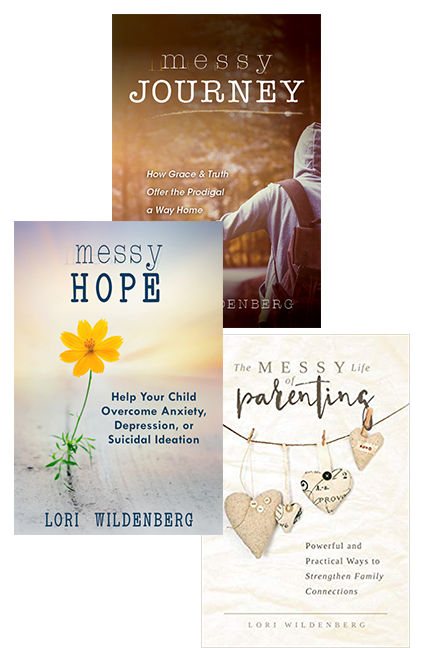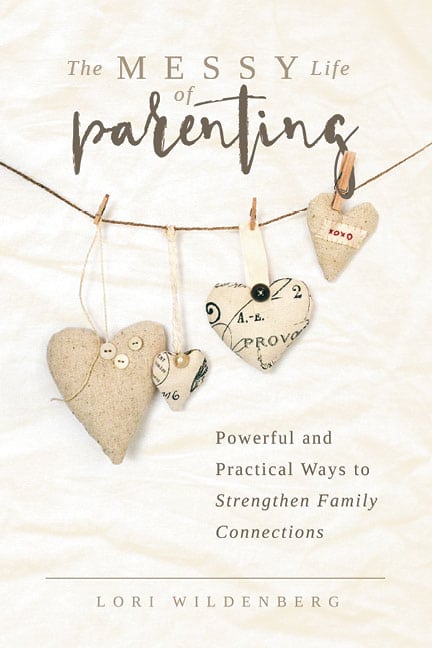
Find Your Family’s Prayer Rhythm
By Janet Holm McHenry
Moms, Dad, and Grandparents,
Today you are in for a treat! I invited author Janet McHenry to guest blog for us this month. After reading her article you will better understand your child’s (and your) prayer personality. You will also gain insight regarding your family’s prayer rhythm and why sometimes it feels out of synch. If you want to learn more about the different prayer personalities, I encourage you to preorder her book, Praying Personalities. This book releases February 13. After reading Janet’s blog, I felt validated in the way in which I pray, which differs from my husband’s approach. I also noticed how different my two little grands are when they pray before a meal. No way is wrong. Connection with God is always right.
I encourage you to preorder her book. Janet’s books are top notch, well researched, practical, and faith-filled. Enjoy!
~Lori
Find Your Family’s Prayer Rhythm
By Janet Holm McHenry
Family prayer times can be interesting, can’t they?
Your outgoing, very social child may pray straight for five or more minutes, while your get-‘er-done child is rolling his eyes and tugging on your shirt asking to be excused. Then another child may hope you don’t call on him because, “Mom, it’s just awkward.” And you’re just trying to keep the peace praying, “Lord, help us all make it through prayer time.”
In years of studying the Bible, I noticed that various biblical people prayed in different ways. So let’s discover the unique prayer personalities in your family so you can understand your family’s prayer rhythm.
Problem Solvers
Some were thinkers, such as Job who wanted to know the reasons behind his suffering. Moses, presented a handful of argumentative points with the Lord as to why he could not lead the Israelites out of Egypt (Exodus 3-4). And they seek signs from God so they know He is in control, as we see from Gideon when he fleece-bargained with God (Judges 6).
I call these folks Problem Solvers because they see prayer as the best problem-solving strategy. Their prayers get right to the point without much elaboration. In a family setting this person may pray, “God, heal Aunt Susan.” And that’s it. That kid said his piece, and he is done with prayer.
Lamenters (also called Organized Pray-ers)
Others are more emotionally wired and often carry heavy burdens into the throne room. We see that in Hannah when she cried out from her misery for a child and then exuberantly praised God after giving birth to Samuel (1 Samuel 1-2). Another example is David, who wrote half of the psalms—many of which express a gamut of emotions. The same poet who wrote “My God, my God, why have you forsaken me?” (Psalm 22:1) also wrote, “O Lord, the king rejoices in your strength” (Psalm 21:1).
In the family setting these Lamenters may get emotional in a prayer setting, and because they tend to be introverted may find it challenging to pray on the spot. If you’d like that child or spouse to pray aloud in a family prayer time, an advance heads-up is wise, so he or she can prepare mentally and emotionally for that challenge. Otherwise, you might hear, “I’m not ready” as that child leaves the room in tears.
Friend of God
You may have a friend or family who is so close to God that she’s the first person you contact when you need someone to pray. Maybe she has said things like “God just gave me the best idea!” One example is Abraham, whom James called a “friend of God” (James 2:23 NIV).
Friends of God are relational. They love communal prayer times and have no problem praying out loud. They can be counted on to lead prayer times but may need to be reminded that others have prayer requests too. Family prayer times are fun for them, and they can get the rest of the family praying in the van or after dinner together.
Peace Seekers
Peace Seekers go to prayer for the purpose of experiencing God’s peace in their lives. They are introverted and can struggle to get spiritual disciplines in place, but once routines are established, they are faithful to follow them. We see this unusual sense of peace in Daniel in the Bible. Three times a day he prayed to God, and despite his challenging circumstances, he demonstrated the peace that only God can provide.
Peace Seekers might appreciate a little help in the prayer department to get them started on prayer routines, such as books of prayers or prayer apps on their phone. To help that child, a parent could say, “Would you like to read one of the prayers from this book to start our prayer time?” But once they have their routine in place, they will devotedly stick to it.
Uniqueness and Freedom in Prayer
What I learned from studying the prayer lives of biblical people was that each of us will approach prayer a little differently. I don’t need to have a prayer closet and go there an hour every day. I don’t need to journal my prayers as my friend does. I don’t need to keep a notebook of all the prayer requests that others give me. I can be free to pray in a manner that syncs with my God-given personality.
And actually, through the practice of prayerwalking—something I’ve done now for twenty-five years—I’ve learned that wherever I am, there’s a need for prayer. So I have a running conversation with God throughout my day . . . and then land in my cozy chair in the evening with one final prayer: “Speak, Lord, for your servant is listening.”
Ultimately, I know that prayer is less about answers but more about access to the God who created me and loves it when I run to him.
Pray without ceasing.
1 Thessalonians 5:17
Bio:
 Janet McHenry is a speaker and author of twenty-six books, including the bestselling Prayer Walk, The Complete Guide to the Prayers of Jesus, and her newest, Praying Personalities: Finding Your Natural Prayer Style. She leads her church’s prayer ministries, has created a Teachable course called Prayer School, and serves on the California leadership team for the National Day of Prayer.
Janet McHenry is a speaker and author of twenty-six books, including the bestselling Prayer Walk, The Complete Guide to the Prayers of Jesus, and her newest, Praying Personalities: Finding Your Natural Prayer Style. She leads her church’s prayer ministries, has created a Teachable course called Prayer School, and serves on the California leadership team for the National Day of Prayer.
 Praying Personalities helps readers determine their praying personality by examining biblical people’s prayer styles, spiritual gifts, eight personality theories, generational praying practices, and learning styles. It also includes scores of bulleted suggestions for developing a praying lifestyle and a Praying Personality Quiz, so readers can find their natural praying style.
Praying Personalities helps readers determine their praying personality by examining biblical people’s prayer styles, spiritual gifts, eight personality theories, generational praying practices, and learning styles. It also includes scores of bulleted suggestions for developing a praying lifestyle and a Praying Personality Quiz, so readers can find their natural praying style.



